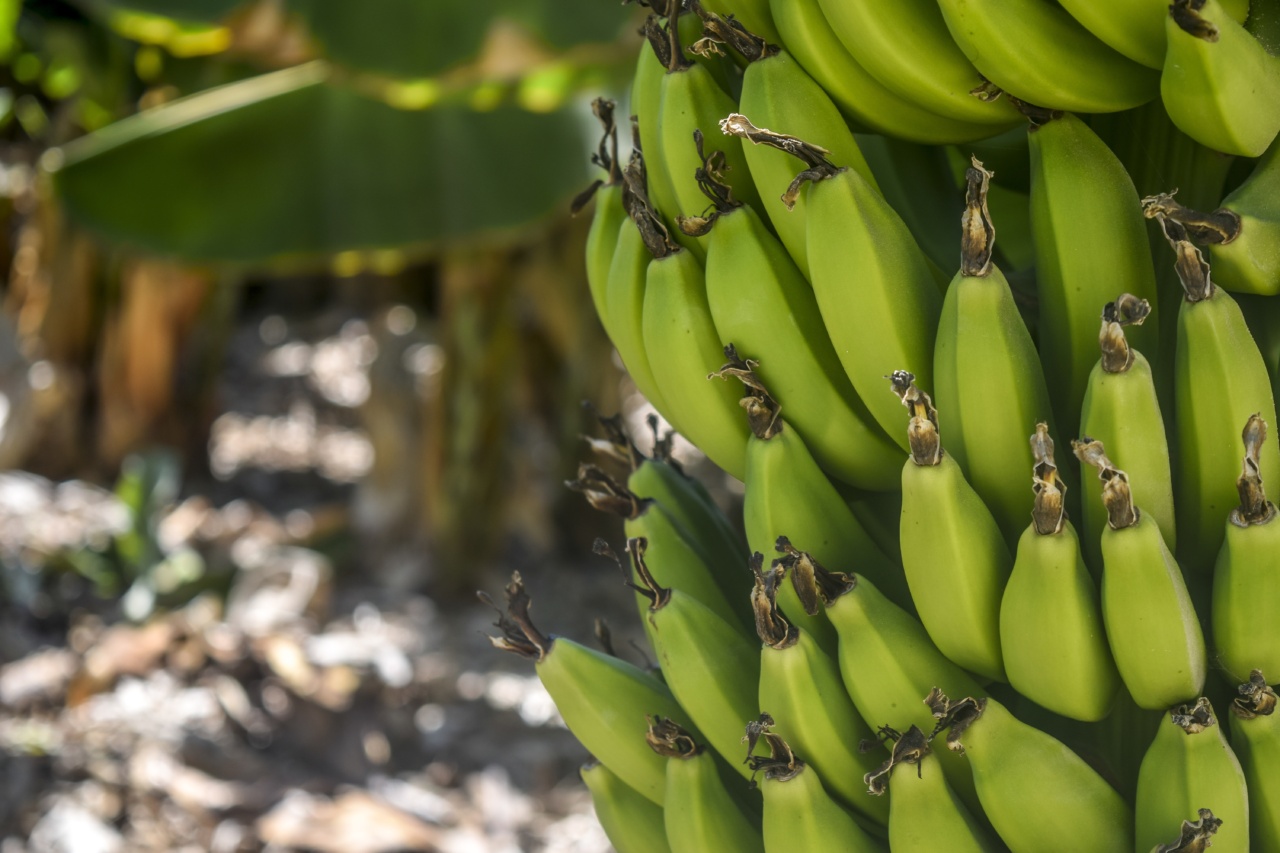Potassium is an essential mineral that plays a crucial role in maintaining proper bodily functions. It is involved in muscle contraction, nerve function, and fluid balance, making it vital for overall health.
Low levels of potassium can lead to muscle weakness, fatigue, and even heart problems. To ensure you are getting enough potassium in your diet, here are 17 foods that are excellent sources of this important mineral.
1. Bananas
When it comes to potassium-rich foods, bananas are often the first that come to mind. A single medium-sized banana contains about 400-450mg of potassium, which is approximately 10% of the daily recommended intake.
Bananas are not only delicious but also versatile, making them an easy choice to boost your potassium.
2. Sweet Potatoes
Sweet potatoes are not only packed with vitamins and fiber but are also an excellent source of potassium. A medium-sized sweet potato contains around 542mg of potassium.
These tasty root vegetables can be roasted, mashed, or used in various recipes to increase your potassium intake.
3. Avocados
Avocados are a unique fruit that is high in healthy fats and offers a host of essential nutrients. Alongside these benefits, a medium-sized avocado contains approximately 708mg of potassium.
Whether enjoyed in salads, spreads, or as a tasty addition to various dishes, avocados are a great way to increase your potassium levels.
4. Spinach
Packed with antioxidants and other beneficial compounds, spinach is a nutrient-rich leafy green powerhouse. Additionally, it is an excellent source of potassium.
Just one cup of cooked spinach provides around 840mg of potassium, which is about 23% of the recommended daily intake.
5. White Beans
Beans, in general, are known for their high potassium content, but white beans specifically stand out. Half a cup of cooked white beans contains an impressive 595mg of potassium.
Incorporating white beans into soups, stews, and salads can help meet your potassium needs.
6. Salmon
Salmon is a fatty fish that not only provides heart-healthy omega-3 fatty acids but also offers a good amount of potassium. A 3-ounce serving of cooked salmon contains approximately 534mg of potassium.
Including salmon in your diet helps diversify your potassium sources while benefiting from its numerous other nutrients.
7. Coconut Water
Known for its hydration benefits, coconut water is also an excellent source of potassium. An 8-ounce serving of coconut water contains an average of 600mg of potassium.
It serves as a refreshing beverage that can help replenish electrolytes post-workout or during hot summer days.
8. Yogurt
Yogurt is not only a delicious and versatile food but also a good source of potassium. A cup of plain yogurt contains around 530mg of potassium. Opt for plain yogurt without added sugar to maximize the health benefits and avoid unnecessary additives.
9. Oranges
Oranges are popular fruits known for their high vitamin C content. However, they are also a decent source of potassium. A medium-sized orange contains approximately 240mg of potassium.
Enjoying an orange as a snack or incorporating it into various recipes can contribute to your potassium intake.
10. Tomatoes
In addition to being widely used in cooking, tomatoes offer an array of health benefits, including being a good source of potassium. One medium-sized tomato provides around 290mg of potassium.
Whether used in salads, sauces, or eaten as a standalone snack, tomatoes are a healthy choice for increasing your potassium levels.
11. Beets
Beets are not only a vibrant and nutritious vegetable but are also an excellent source of potassium. Half a cup of cooked beets contains approximately 260mg of potassium.
Incorporate beets into your diet by roasting them, adding them to salads, or enjoying them as a side dish.
12. Prunes
Prunes, also known as dried plums, are not only a great source of dietary fiber but also provide a good amount of potassium. Half a cup of prunes contains around 637mg of potassium. They can be enjoyed as a standalone snack or used in baking and cooking.
13. Carrots
Carrots are not only crunchy and delicious but also offer a decent amount of potassium. A medium-sized carrot contains approximately 400mg of potassium.
Enjoy carrots as a snack with hummus or incorporate them into various recipes to boost your potassium intake.
14. Edamame
Edamame, also known as soybeans, is a versatile legume that makes for a nutrient-dense snack or addition to various dishes. Half a cup of edamame provides around 470mg of potassium. It can be enjoyed steamed, boiled, or included in stir-fries and salads.
15. Kiwi
Kiwis are small fruits that pack a powerful nutritional punch. Besides being rich in vitamin C and other essential nutrients, kiwis are also a good source of potassium. One medium-sized kiwi contains approximately 240mg of potassium.
Add sliced kiwi to yogurt, smoothies, or enjoy it as a standalone fruit.
16. Pomegranate
Pomegranates are not only delicious and packed with antioxidants but also offer a decent amount of potassium. One medium-sized pomegranate contains approximately 666mg of potassium.
Enjoy the vibrant seeds as a topping on salads, in smoothies, or enjoy the juice for a refreshing potassium boost.
17. Apricots
Apricots are small, orange fruits that are not only tasty but also a rich source of potassium. Half a cup of sliced apricots contains approximately 360mg of potassium.
Enjoy apricots as a healthy snack, incorporate them into baked goods, or use them to sweeten up your morning oatmeal.
By incorporating these 17 potassium-rich foods into your diet, you can ensure you are meeting your daily potassium needs.
Whether through fruits, vegetables, legumes, or other sources, maintaining adequate potassium levels is essential for optimal health. So, start including these foods in your meals and enjoy the numerous benefits they offer.





























